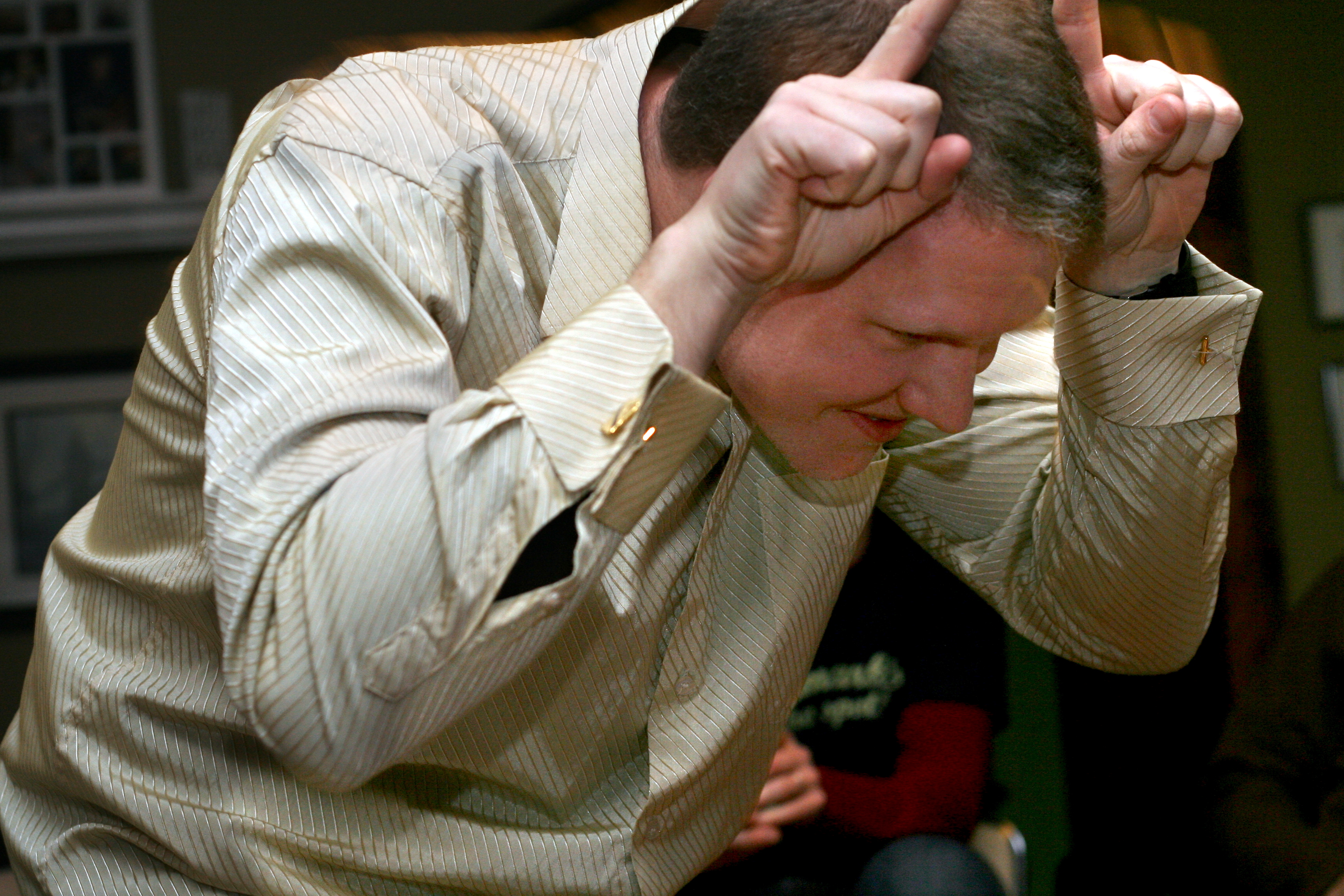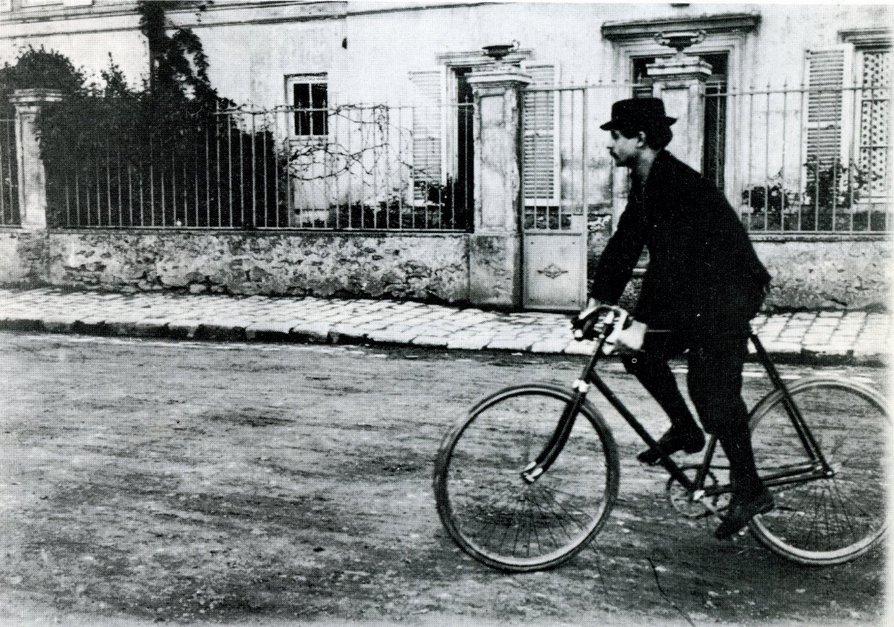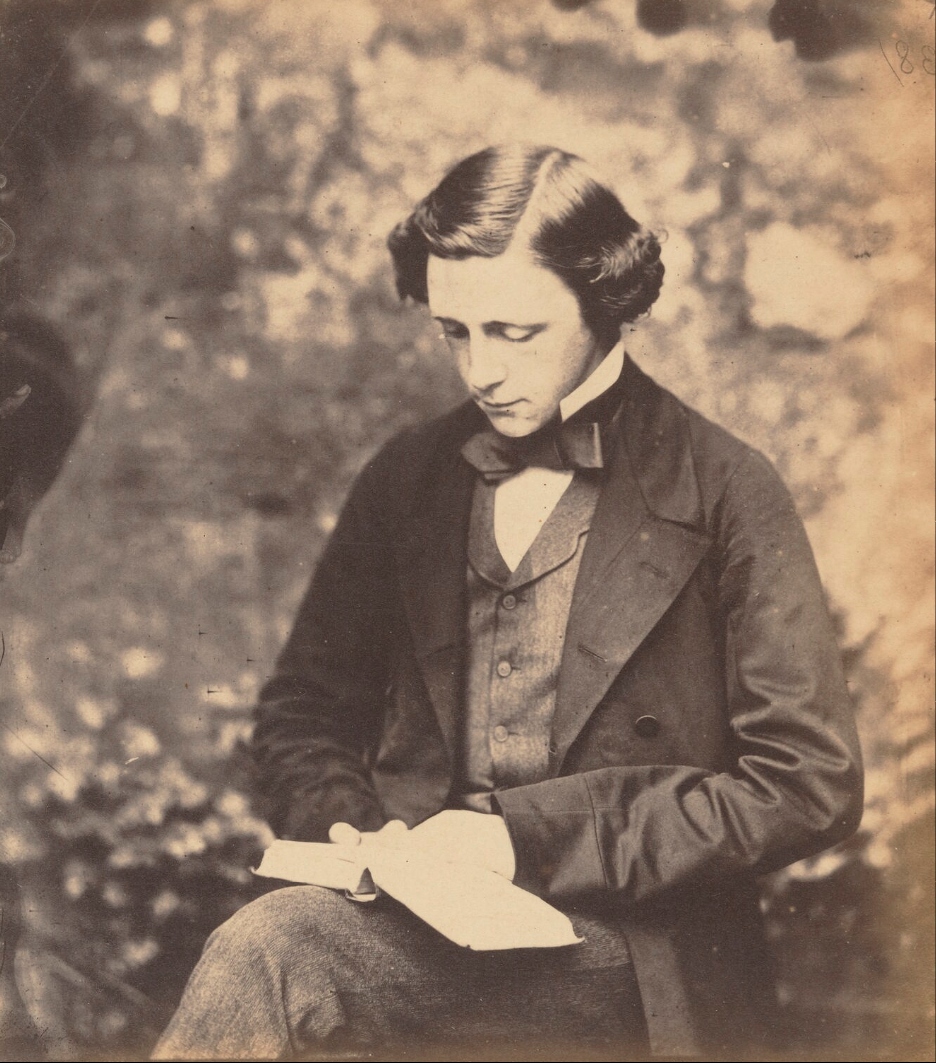|
Luc Étienne
Luc Étienne Périn, also known as Luc Étienne, (8 September 1908 – 27 November 1984) was a French writer and a proponent of 'pataphysics. He was born on 8 September 1908, in the small town of Neuflize, in the Ardennes, and died on 27 November 1984, in Reims. After having studied in Charleville, he went on, in 1945, to teach mathematics and physics in a secondary school in Reims. In 1952, his first 'pataphysical works were published in the books of the College of 'Pataphysics, whose Regent and Chief of Practical Work he later became. He published 'The Art of the Spoonerism' in 1957, and maintained until his death a weekly section of linguistic gaffes in the French satirical newspaper, Le Canard enchaîné. In 1970, he became a member of the equally experimental Oulipo, a loose group of Francophone writers and mathematicians. Périn is most famed for his avant garde humour, and his interest in many literary facets, such as slang, palindromes,Oulipo compendium Harry Mathews, Al ... [...More Info...] [...Related Items...] OR: [Wikipedia] [Google] [Baidu] |
:Template:Infobox Writer/doc
Infobox writer may be used to summarize information about a person who is a writer/author (includes screenwriters). If the writer-specific fields here are not needed, consider using the more general ; other infoboxes there can be found in :People and person infobox templates. This template may also be used as a module (or sub-template) of ; see WikiProject Infoboxes/embed for guidance on such usage. Syntax The infobox may be added by pasting the template as shown below into an article. All fields are optional. Any unused parameter names can be left blank or omitted. Parameters Please remove any parameters from an article's infobox that are unlikely to be used. All parameters are optional. Unless otherwise specified, if a parameter has multiple values, they should be comma-separated using the template: : which produces: : , language= If any of the individual values contain commas already, add to use semi-colons as separators: : which produces: : , ps ... [...More Info...] [...Related Items...] OR: [Wikipedia] [Google] [Baidu] |
Charades
Charades (, ). is a parlor game, parlor or party game, party word game, word guessing game. Originally, the game was a dramatic form of literary charades: a single person would act out each syllable of a word or phrase in order, followed by the whole phrase together, while the rest of the group guessed. A variant was to have teams who acted scenes out together while the others guessed. Today, it is common to require the actors to mime their hints without using any spoken words, which requires some conventional gestures. Puns and visual puns were and remain common. History Literary charades A charade was a form of literary riddle popularized in France in the 18th century where each syllable of the answer was described enigmatically as a separate word before the word as a whole was similarly described. The term ''charade'' was borrowed into English from French in the second half of the eighteenth century, denoting a "kind of riddle in which each syllable of a word, or a complete ... [...More Info...] [...Related Items...] OR: [Wikipedia] [Google] [Baidu] |
Oulipo Members
Oulipo (, short for french: Ouvroir de littérature potentielle; roughly translated: ''"workshop of potential literature"'', stylized ''OuLiPo'') is a loose gathering of (mainly) French-speaking writers and mathematicians who seek to create works using constrained writing techniques. It was founded in 1960 by Raymond Queneau and François Le Lionnais. Other notable members have included novelists Georges Perec and Italo Calvino, poets Oskar Pastior and Jean Lescure, and poet/mathematician Jacques Roubaud. The group defines the term ''littérature potentielle'' as (rough translation): "the seeking of new structures and patterns which may be used by writers in any way they enjoy". Queneau described Oulipians as "rats who construct the labyrinth from which they plan to escape." Constraints are used as a means of triggering ideas and inspiration, most notably Perec's "story-making machine", which he used in the construction of '' Life: A User's Manual''. As well as established techn ... [...More Info...] [...Related Items...] OR: [Wikipedia] [Google] [Baidu] |
People From Ardennes (department)
A person ( : people) is a being that has certain capacities or attributes such as reason, morality, consciousness or self-consciousness, and being a part of a culturally established form of social relations such as kinship, ownership of property, or legal responsibility. The defining features of personhood and, consequently, what makes a person count as a person, differ widely among cultures and contexts. In addition to the question of personhood, of what makes a being count as a person to begin with, there are further questions about personal identity and self: both about what makes any particular person that particular person instead of another, and about what makes a person at one time the same person as they were or will be at another time despite any intervening changes. The plural form "people" is often used to refer to an entire nation or ethnic group (as in "a people"), and this was the original meaning of the word; it subsequently acquired its use as a plural form of ... [...More Info...] [...Related Items...] OR: [Wikipedia] [Google] [Baidu] |
1984 Deaths
Events January * January 1 – The Bornean Sultanate of Brunei gains full independence from the United Kingdom, having become a British protectorate in 1888. * January 7 – Brunei becomes the sixth member of the Association of Southeast Asian Nations (ASEAN). * January 10 ** The United States and the Vatican (Holy See) restore full diplomatic relations. ** The Victoria Agreement is signed, institutionalising the Indian Ocean Commission. *January 24 – Steve Jobs launches the Macintosh personal computer in the United States. February * February 3 ** Dr. John Buster and the research team at Harbor–UCLA Medical Center announce history's first embryo transfer from one woman to another, resulting in a live birth. ** STS-41-B: Space Shuttle ''Challenger'' is launched on the 10th Space Shuttle mission. * February 7 – Astronauts Bruce McCandless II and Robert L. Stewart make the first untethered space walk. * February 8– 19 – The 1984 Winter Olympics are held i ... [...More Info...] [...Related Items...] OR: [Wikipedia] [Google] [Baidu] |
1908 Births
Nineteen or 19 may refer to: * 19 (number), the natural number following 18 and preceding 20 * one of the years 19 BC, AD 19, 1919, 2019 Films * ''19'' (film), a 2001 Japanese film * ''Nineteen'' (film), a 1987 science fiction film Music * 19 (band), a Japanese pop music duo Albums * ''19'' (Adele album), 2008 * ''19'', a 2003 album by Alsou * ''19'', a 2006 album by Evan Yo * ''19'', a 2018 album by MHD * ''19'', one half of the double album ''63/19'' by Kool A.D. * ''Number Nineteen'', a 1971 album by American jazz pianist Mal Waldron * ''XIX'' (EP), a 2019 EP by 1the9 Songs * "19" (song), a 1985 song by British musician Paul Hardcastle. * "Nineteen", a song by Bad4Good from the 1992 album '' Refugee'' * "Nineteen", a song by Karma to Burn from the 2001 album ''Almost Heathen''. * "Nineteen" (song), a 2007 song by American singer Billy Ray Cyrus. * "Nineteen", a song by Tegan and Sara from the 2007 album '' The Con''. * "XIX" (song), a 2014 song by Slipkn ... [...More Info...] [...Related Items...] OR: [Wikipedia] [Google] [Baidu] |
Pataphysics
Pataphysics (french: 'pataphysique) is a " philosophy" of science invented by French writer Alfred Jarry (1873–1907) intended to be a parody of science. Difficult to be simply defined or pinned down, it has been described as the "science of imaginary solutions". Introduction 'Pataphysics was a concept expressed by Jarry in a mock-scientific manner, with undertones of spoofing and quackery, as expounded in his novel ''Exploits and Opinions of Dr. Faustroll, Pataphysician''. Here, Jarry toyed with conventional concepts and interpretations of reality. Another attempt at a definition interprets 'pataphysics as an idea that "the virtual or imaginary nature of things as glimpsed by the heightened vision of poetry or science or love can be seized and lived as real". Jarry defines 'pataphysics in a number of statements and examples, including that it is "the science of imaginary solutions, which symbolically attributes the properties of objects, described by their virtuality, to thei ... [...More Info...] [...Related Items...] OR: [Wikipedia] [Google] [Baidu] |
Lewis Carroll
Charles Lutwidge Dodgson (; 27 January 1832 – 14 January 1898), better known by his pen name Lewis Carroll, was an English author, poet and mathematician. His most notable works are ''Alice's Adventures in Wonderland'' (1865) and its sequel ''Through the Looking-Glass'' (1871). He was noted for his facility with word play, logic, and fantasy. His poems ''Jabberwocky'' (1871) and ''The Hunting of the Snark'' (1876) are classified in the genre of literary nonsense. Carroll came from a family of high-church Anglicanism, Anglicans, and developed a long relationship with Christ Church, Oxford, where he lived for most of his life as a scholar and teacher. Alice Liddell, the daughter of Christ Church's dean Henry Liddell, is widely identified as the original inspiration for ''Alice in Wonderland'', though Carroll always denied this. An avid puzzler, Carroll created the word ladder puzzle (which he then called "Doublets"), which he published in his weekly column for ''Vanity Fair ( ... [...More Info...] [...Related Items...] OR: [Wikipedia] [Google] [Baidu] |
Alphonse Boudard
Alphonse Boudard (17 December 1925 – 14 January 2000) was a French novelist and playwright. He won the 1977 Prix Renaudot for ''Les Combattants du petit bonheur''. Boudard's 1995 novel ''Dying childhood '' was awarded and recognised by the French Academy with a Grand Prix du roman de l'Académie française. Biography Boudard was born in Paris, an illegitimate child. He was brought up first by an adoptive family in the Loiret region of the center of France, then by his grand mother in the south of Paris. Boudard had a late career. As a teenager he was living in a country occupied by the German Army. He was wounded fighting for the French and he was awarded a military medal. His early adult life was spent in casual work, periods in jail and in a sanatorium recovering from tuberculosis. He experimented with writing, but it was not until he was 33 that he decided to be a full-time writer. He credits the writer Albert Paraz with inspiring this move. His novels are characterise ... [...More Info...] [...Related Items...] OR: [Wikipedia] [Google] [Baidu] |
Album De La Comtesse
An album is a collection of audio recordings issued on compact disc (CD), vinyl, audio tape, or another medium such as digital distribution. Albums of recorded sound were developed in the early 20th century as individual 78 rpm records collected in a bound book resembling a photograph album; this format evolved after 1948 into single vinyl long-playing (LP) records played at rpm. The album was the dominant form of recorded music expression and consumption from the mid-1960s to the early 21st century, a period known as the album era. Vinyl LPs are still issued, though album sales in the 21st-century have mostly focused on CD and MP3 formats. The 8-track tape was the first tape format widely used alongside vinyl from 1965 until being phased out by 1983 and was gradually supplanted by the cassette tape during the 1970s and early 1980s; the popularity of the cassette reached its peak during the late 1980s, sharply declined during the 1990s and had largely disappeared duri ... [...More Info...] [...Related Items...] OR: [Wikipedia] [Google] [Baidu] |
Bouts-Rimés
Bouts-Rimés (French language, French, literally 'rhymed-ends') is the name given to a kind of poetic game defined by Joseph Addison, Addison in ''The Spectator (1711), the Spectator'' as "lists of words that rhyme to one another, drawn up by another hand, and given to a poet, who was to make a poem to the rhymes in the same order that they were placed upon the list". The more odd and perplexing the rhymes are, the more ingenuity is required to give a semblance of common sense to the production. For instance, the rhyme scheme ''breeze, elephant, squeeze, pant, scant, please, hope, pope'' is submitted, and the following stanza is the result: The invention of ''bouts-rimés'' is attributed to a minor French poet of the 17th century named Dulot, of whom little else is remembered. According to the Menagiana, about the year 1648, Dulot was complaining one day that he had been robbed of a number of valuable papers, and, in particular, of three hundred sonnets. Surprise being expressed a ... [...More Info...] [...Related Items...] OR: [Wikipedia] [Google] [Baidu] |

.png)
_1938.jpg)


